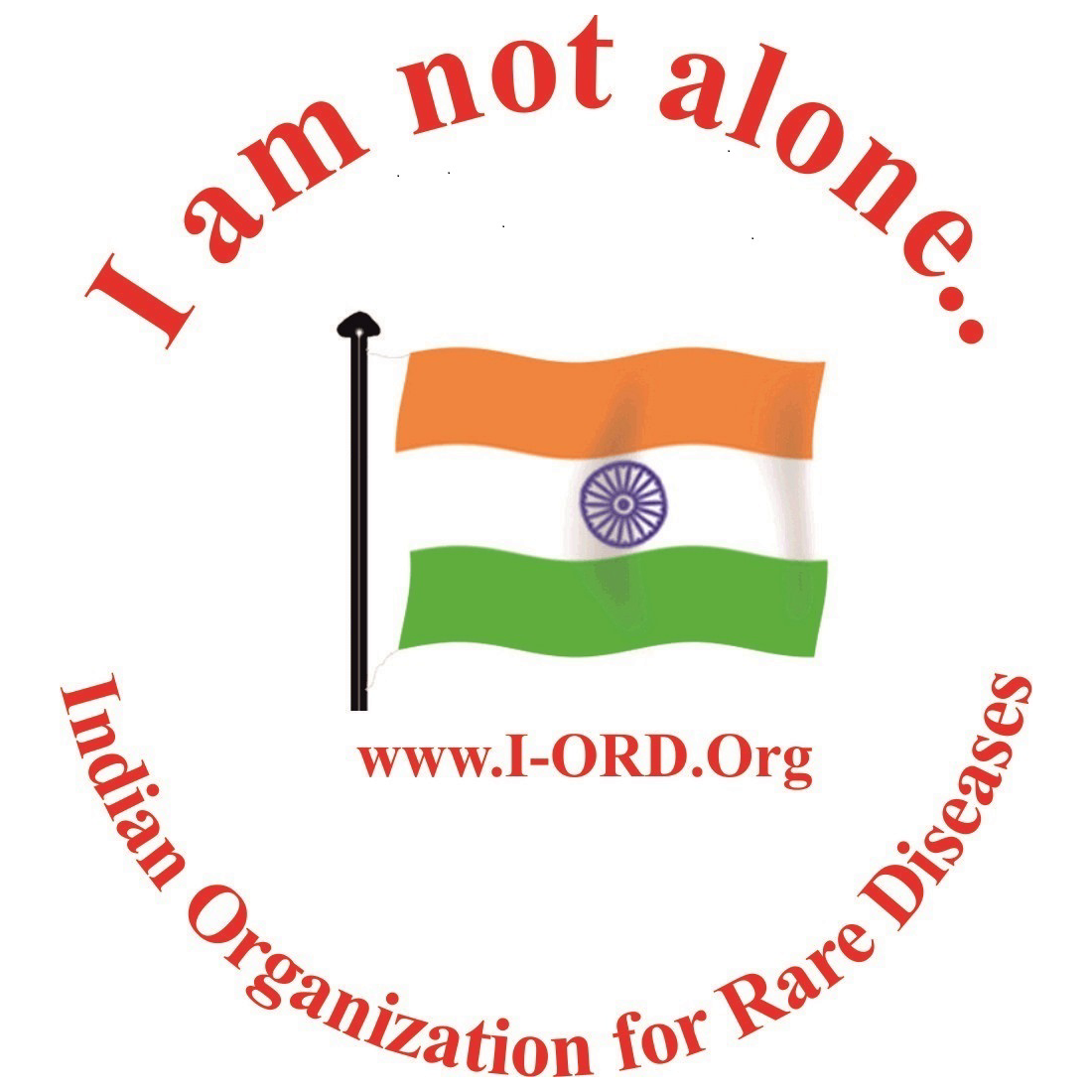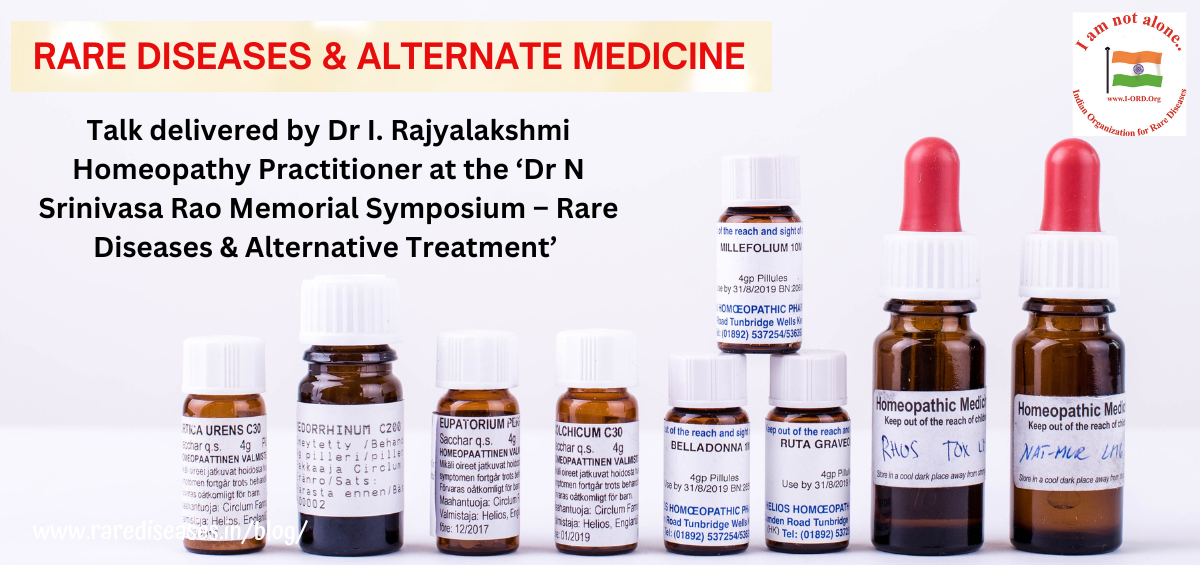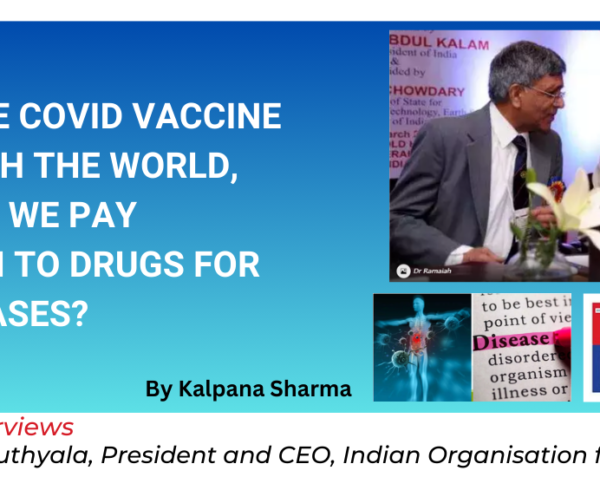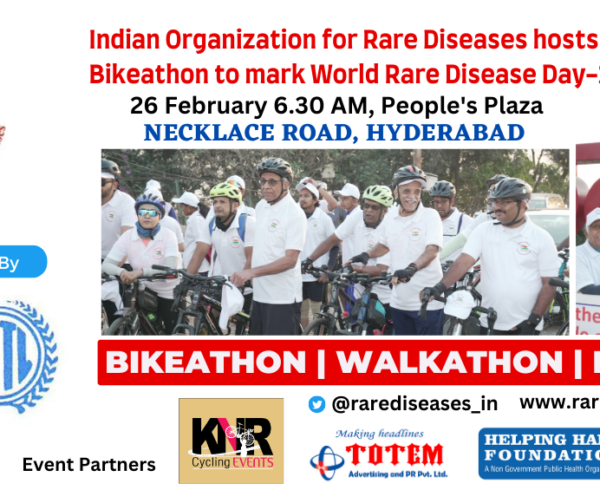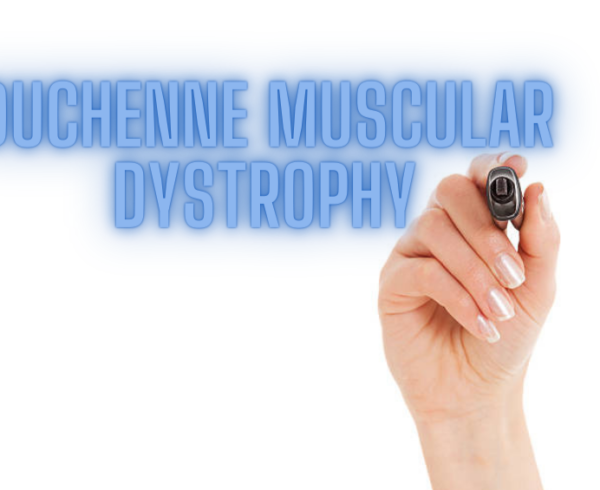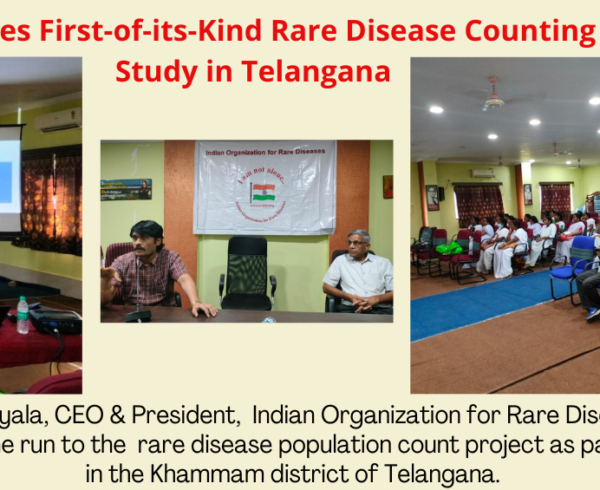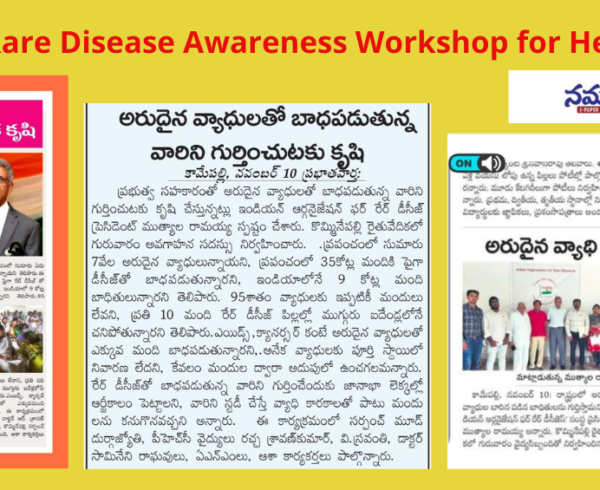(This is an abridged version of the presentation delivered by Dr I. Rajyalakshmi Homeopathy Practitioner, Hyderabad at the ‘Dr N Srinivasa Rao Memorial Symposium – Rare Diseases & Alternative Treatment’ organized by IORD at Hyderabad on 25th June)
Rare disease: Definition
The World Health Organization (WHO) defines a rare disease as a life-long debilitating disease with a prevalence rate of 1 or less per 1 for every 1000 population. Rare diseases are indeed orphan diseases and over 7,000 rare diseases have been already identified and more are added every day. Collectively, rare diseases affect more than 350 million across the world.
Background of Rare Diseases:
Rare Diseases are still a nascent and evolving field. The spontaneous mutations/undiagnosed categories pose challenges for medical practitioners. Currently, treatment is available for only 5% of 7,000 + rare diseases (about 400 rare diseases). About 85% of rare diseases are genetic.
The average time needed to arrive for an accurate diagnosis is approximately 7 + years in the USA. It is 5 + years in the UK. We can well imagine the Indian situation!
India – Undefined Rare Disease:
There is a lack of incidence & prevalence data of rare diseases in India. Even in most cases, the medical fraternity & public are unaware of the disease. India needs to identify the prevalence of Rare Diseases. There should be scope for new drug investigational options for orphan drugs and start clinical trials & take up research & development for rare disease drugs.
India: Challenges & Opportunities in Rare Disease Drugs Development
For Rare Disease Drugs Development, all the stakeholders need to come together. If this happens, India can contribute immensely to the Rare Disease field.
Interestingly, there is no US FDA type overprotective regulatory nuisance or interference in India to impede RD clinical trials.
For instance, in the early 90s cysteamine proved its utility in helping many a patient. While the US FDA impeded glyceryl tri-acetate trial in a baby with Canavan’s Disease – who hardly had a few weeks for survival – the parents were ready to take the risk but the US FDA regulators insisted on lengthy trials instead of understanding empathetically the parents’ angst!
It is important to be humane-centred instead of getting lost in paperwork and rhetoric! In India, Rare Disease families are courageously open to orphan drugs despite the risks & challenges but over-regulation like US FDA impedes finding a cure for rare diseases.
Indian Readiness: R&D & Clinical Trials on Rare Diseases
India can make a meaningful contribution to R&D & conducting clinical trials on rare diseases. For example, sickle cell anaemia is highly prevalent in tribal belts of Telangana. There is immense scope for conducting trials and conduct Research & Development. The results may be applied to other Rare Diseases having some commonality pharmacologically.
Similarly, clinical trials and R&D on a non-rare disease with features of Rare Diseases may give breakthroughs. For example, osteopetrosis is a Rare Disease as per NORD. There is endemic fluorosis in Telangana offering similar skeletal pathophysiology. Maybe, we could get a breakthrough in the Rare Disease osteopetrosis by studying endemic skeletal fluorosis.
So, why wait and waste time? We need to start somewhere. Cull the data and correlate given the huge diverse clinical pool. We must stop looking towards the west for our community needs/priorities.
Scope for Alternate Medicine in Rare Diseases
The very word ‘alternate’ is a misnomer as there is nothing in the mainstream to call AYUSH alternate in the context of Rare Diseases. They are chronic, long-term debilitating diseases much more than exon splicing gene editing whole genome sequencing with CRISPR-9 kind of excitement.
The day-to-day health issues of RD patients – as insignificant as drooling or constipation – can be handled by AYUSH doctors. If not much more, it can help in lessening the cost burden on Rare Disease families.
Rare Diseases & Homoeopathy
The homoeopathic principles underpinning rare disease management broadly comprise:
- Aiasmatic Aetio Pathogenesis – Addressing hereditary influences
- Symptomatic totality-based Physician Quality Reporting System (PQRS)
common symptoms - Target organ based
My Clinical Experiences in Rare Diseases
I have managed a few rare diseases in a limited manner. I would like to share my experiences & thoughts on:
• Rare disease and rarest among the rare disease for which no available treatment in modern medicine
• Complementing modern medicine therapies with homoeopathy
• Undiagnosed rare diseases
a) Classical Duchenne Muscular Dystrophy adult-onset in a woman patient
With homoeopathic drugs, CPK was near normal or at times would increase but the course of the disease never altered. Homoeopathy helped her, symptomatically, though. For example, an episode of RTI and near-onset respiratory failure was reversed by homoeopathy. In young boys, homoeopathy can be advantageously used for addressing some issues that come along with Duchenne Muscular Dystrophy
b) Complementing modern medicine therapies with homoeopathy
Primary Addison’s is mentioned in the NORD list of rare disorders. In my experience, I found that homoeopathy can be used to treat such patients symptomatically. In one case, a woman lived many long years and eventually died of carcinoid/ multiple endocrine neoplasias. In another case, homoeopathy addressed RTIs in a boy diagnosed with Auto Immune Addison’s Disease.
Whether primary or non-primary, patients need symptomatic treatment for their small/large ailments related to Rare Diseases on their long journey with Rare Diseases and homoeopathy can serve its role and be leveraged!
c) Undiagnosed Rare Diseases
Case Study: An NRI London-based doctor’s child was born with microcephaly. Homoeopathy helped the child’s drooling. There was a slow improvement in IQ and head size.
Way Forward:
Rare diseases need a combined effort of all stakeholders including patients, caretakers, doctors of both Allopathy & AYUSH, psychologists, behavioural therapists, health care professionals, epidemiologists and policymakers.
India must initiate its rare disease definition that suits the population needs.
In particular, steps need to be taken to:
• List the rare diseases
• Establish Rare disease registries
• Use the huge student power of medical colleges by making it mandatory for these to contribute to the data on geolocation-based prevalence rates of rare diseases seen in India such as Sickle cell disease, Thalassemia & haemophilia etc.
